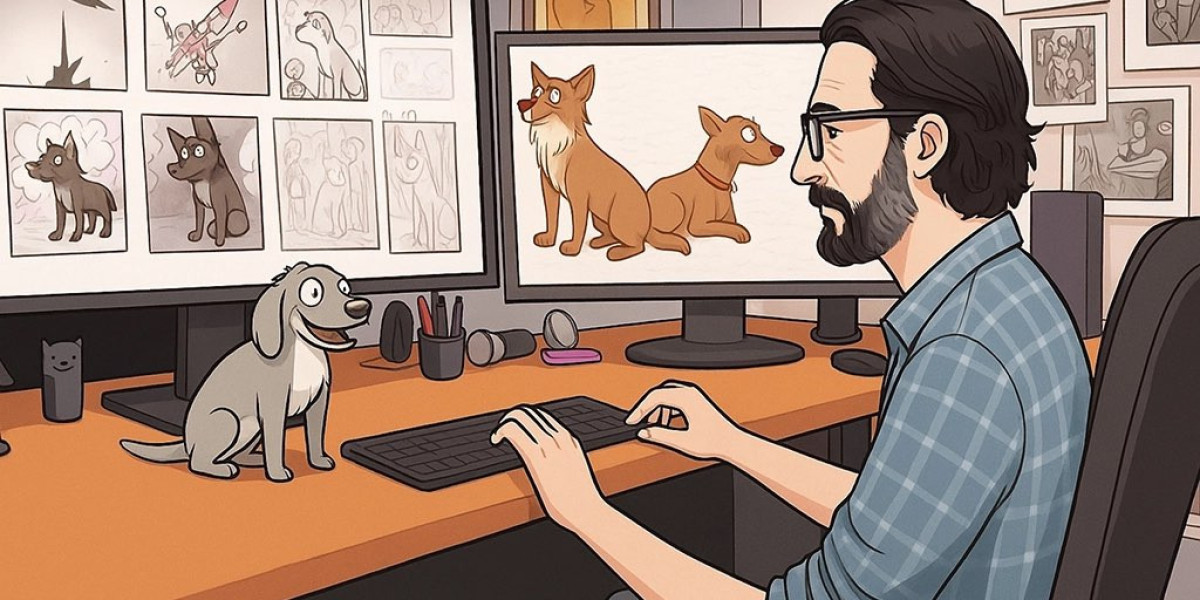What is 2D Animation?
2D animation is the art of creating movement in a flat, two-dimensional space — using only height and width to tell stories. Unlike 3D animation, which adds depth, 2D focuses on expressive drawing, timing, and storytelling to create memorable scenes.
An animated project typically includes:
Characters – the stars of the story
Backgrounds – the world they live in
Effects – elements like weather, magic, or action highlights
A Brief History of 2D Animation
1900s–1930s: Early Days
The journey began with silent shorts and evolved with breakthroughs like Walt Disney’s Steamboat Willie (1928), the first synchronized sound cartoon.
1930s–1950s: Golden Age
Disney, Warner Bros., and MGM created iconic works like Snow White and the Seven Dwarfs (1937), shaping pop culture for decades.
1960s–1980s: TV Boom
Cartoons like The Flintstones and Scooby-Doo made animation a household staple, especially for Saturday morning entertainment.
1990s–2000s: Digital Revolution
Hand-drawn techniques merged with digital tools. Movies like The Lion King (1994) used hybrid animation, combining traditional artistry with new technology.
2010s–Today: Modern Revival
Streaming platforms have reignited 2D animation’s popularity with shows like Adventure Time and Rick and Morty.
Essential Skills for a 2D Animator
Artistic Skills
Drawing – Anatomy, perspective, and expressive poses
Storytelling – Bringing emotion and narrative to every frame
Technical Skills
Software Proficiency – Adobe Animate, Toon Boom Harmony, Clip Studio Paint
Motion Understanding – Principles like squash & stretch, anticipation, and arcs
Soft Skills
Attention to Detail – Smooth frame-to-frame transitions
Communication – Working effectively with creative teams
The 12 Principles of Animation (The Animator’s Golden Rules)
From squash & stretch to appeal, these principles (developed by Disney animators) ensure characters feel alive and movements look natural. Mastering them is non-negotiable for any aspiring animator.
The Animation Pipeline
Pre-Production – Scriptwriting, storyboarding, character design, animatics
Production – Animation, backgrounds, voice recording, coloring
Post-Production – Editing, sound design, visual effects, final render
Knowing this workflow helps manage timelines, budgets, and quality.
Top Career Paths in 2D Animation
Character Animator – Brings characters’ personalities to life through movement
Storyboard Artist – Plans the visual flow of the story
Background Artist – Designs and paints environments
Layout Artist – Decides camera angles and shot composition
Clean-Up Artist – Refines rough animation into polished drawings
Inbetween Animator – Creates frames between key poses for smooth motion
Effects Animator – Designs visual effects like fire, water, or magic
Motion Graphics Designer – Creates animated graphics for media and ads
Stop Motion Animator – Animates physical models frame-by-frame
Independent Animator – Produces original animated projects from scratch
How to Start Your Journey
Learn the Fundamentals – Take courses, attend workshops, or self-study
Practice Daily – Build personal projects to sharpen skills
Create a Portfolio – Show off your best work online and in demo reels
Network – Connect with other animators, studios, and creative communities
Final Thoughts
2D animation blends art, storytelling, and technology into a craft that has been captivating audiences for over a century. With passion, skill, and persistence, you can join the ranks of artists who make drawings move, speak, and inspire.
Whether you want to work in a major studio or create your own animated worlds, the possibilities are endless — and the journey is as exciting as the destination.







